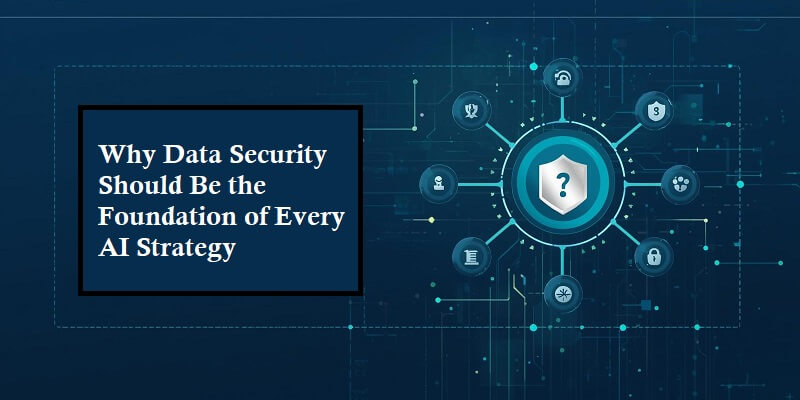Artificial intelligence has transformed the way businesses operate, enabling smarter decision-making, automation, and enhanced customer experiences. From predictive analytics to natural language processing, AI systems are now integral to enterprise operations. However, as organizations increasingly rely on AI, one critical consideration often takes a back seat: data security. Understanding why data security should be the foundation of every AI strategy is essential, because ensuring robust data protection isn’t just a regulatory requirement—it’s the cornerstone of a sustainable and effective AI-driven future.
AI Depends on Data
AI systems thrive on data. They learn patterns, make predictions, and generate insights by analyzing vast quantities of information. This data often includes sensitive customer information, intellectual property, and proprietary business intelligence. Just as understanding the benefits of financial analysis helps organizations make informed strategic decisions, recognizing the importance of data protection is equally vital. If this information is exposed, it could lead to catastrophic consequences, including financial loss, reputational damage, and legal penalties. Therefore, any AI initiative that doesn’t prioritize data security is inherently fragile, regardless of its technological sophistication.
The Risk of Data Breaches
A key reason why data security should underpin every AI strategy is the inherent risk of data breaches. AI systems often rely on cloud storage, third-party APIs, and interconnected data pipelines, which can introduce multiple points of vulnerability. Cybercriminals increasingly target AI infrastructures, knowing that the potential payoff is substantial. Without strong safeguards, malicious actors can exploit these vulnerabilities to access sensitive data or manipulate AI models, leading to compromised decision-making and potentially severe business implications.
AI Models Can Expose Sensitive Data
AI models themselves can inadvertently become vectors of data exposure. Techniques such as model inversion or data reconstruction attacks allow adversaries to extract information from trained AI models, revealing confidential or personally identifiable data. By implementing strong data security measures from the outset, organizations can mitigate these risks and ensure that their AI deployments don’t become liabilities.
Regulatory Compliance
Compliance is another crucial driver for embedding data security into AI strategies. Regulations such as GDPR, CCPA, and HIPAA impose strict requirements on how organizations handle sensitive data. Failure to comply can result in substantial fines and legal action. AI systems, by their nature, process and store large volumes of data, making adherence to these regulations complex but essential. A data-secure AI strategy ensures that organizations remain compliant while leveraging the benefits of advanced analytics.
Building Trust Through Data Security
Prioritizing data security enhances trust both internally and externally. Customers, partners, and stakeholders are increasingly concerned about how their data is used and protected. Demonstrating a commitment to AI data security with a proactive, transparent approach builds confidence and strengthens brand reputation. When people trust that their information is safe, organizations can unlock higher engagement, better collaboration, and more effective AI-driven insights.
Encouraging Responsible AI
Implementing data security as a foundational component of AI strategies also encourages a culture of responsible AI. By integrating security measures from the early stages of model development; organizations can ensure that AI systems are designed with privacy, confidentiality, and ethical use in mind. This proactive stance reduces the likelihood of downstream risks such as unintentional data leaks or biased outcomes driven by compromised datasets. To support this approach, many professionals and teams are choosing to upskill through a structured cyber security course.
Practical Steps to Secure AI
Securing AI begins with data classification, encryption, access controls, and continuous monitoring. Organizations should assess where their data resides, who has access, and how it is used throughout the AI lifecycle. Automated tools can help detect anomalies and enforce policies, while secure architectures such as zero-trust frameworks provide additional layers of protection. For businesses looking to safely leverage AI, focusing on AI data security with solutions designed to safeguard sensitive information ensures that AI capabilities are both powerful and reliable.
Summing It All Up
AI is a transformative force, but its potential can only be fully realized when built on a foundation of strong data security. Protecting sensitive information, ensuring regulatory compliance, and fostering trust aren’t optional; they’re essential pillars of any successful AI strategy. Organizations that integrate robust data security from the beginning are better positioned to innovate responsibly, mitigate risks, and achieve sustainable AI-driven growth. By making data security the cornerstone of AI strategy, businesses can confidently navigate the future of intelligent technologies while safeguarding the data that powers them.


